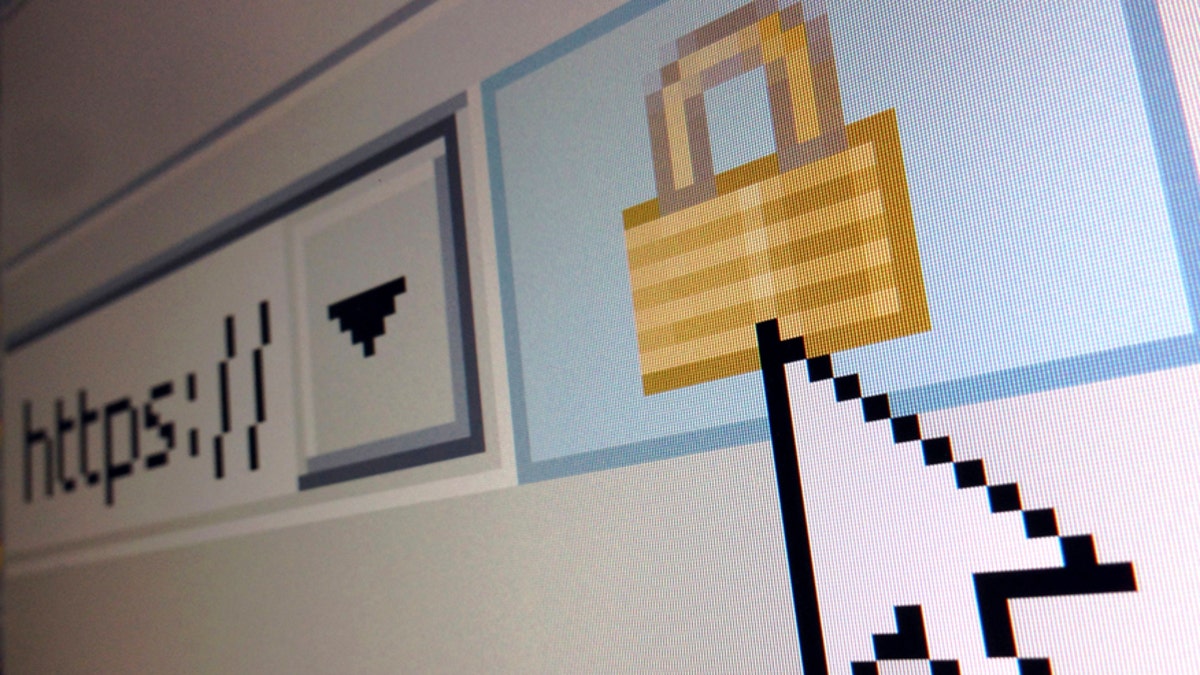
A lock icon, signifying an encrypted Internet connection, is seen on an Internet Explorer browser in a photo illustration in Paris April 15, 2014. (REUTERS/Mal Langsdon)
Move over eggs and toilet paper. The prank of choice for some Millennials is hacking into large corporations.
On Monday, a suspected cyber-criminal was arrested in Northern Ireland and released on bail Tuesday. The alleged crime involved stealing personal records including credit card numbers and other bank details from a telecommunications company in the U.K. called TalkTalk. The data breach could end up costing millions, according to company reps.
If you think that's shocking, brace yourself: the suspect is only 15 years old.
Related: Why you should wrap your keys in aluminum foil
As FoxNews.com found, cybercriminals are skewing younger and younger. In 2013, a 16-year-old managed to cripple the FBI’s Internet Crime Complaint Center site. Earlier this month, another teen claimed he hacked into the email account of CIA director John Brennan.
According to Ken Westin, a Security Analyst for Tripwire, young hackers are running amok at a time when the teen brain is still developing and trying to figure out right from wrong.
“We have a generation now that was born with Internet access, who were using computers before they could walk. Hacking tools and techniques are readily accessible on the Internet and they are becoming increasingly easy to use. When you pair these two elements with the appeal of hacker culture fueled by a bit of teenage rebellion, you have a potentially volatile cocktail,” he told FoxNews.com.
Related: One change that instantly makes your computer safer
Shaun Murphy, the CEO and inventor of the encryption tool SNDR.com, told FoxNews.com that a key driver for young hackers is the promise of quick riches. There was a ransom demand related to the TalkTalk breach, according to media reports. In July, a teen in Finland was convicted of data breaches involving stolen credit card numbers.
“Computers, tablets, and smartphones are very inexpensive and [sometimes older devices are free] and internet access is just a coffee shop away,” says Murphy. “Combine that with the energy and inquisitive nature of children and you have unlimited possibilities.”
However, not every expert agreed that hackers are skewing younger.
Mark Kraynak, chief product officer at Imperva, says it is naive to think there are more young hackers because the tools are easier to use. Teens have been able to learn the trade since Bill Gates was in high school. Jonathan Sander, a vice president at Lieberman Software, says there’s even a term for teens who imitate real hackers: script kiddies.
“These are the lazy young people who use the easy ways to pull off simple, well known exploits that mostly work against similarly lazy, ill defended targets,” he says, explaining that the ethical hackers who test security systems use more complex tools and programming techniques.
Val Saengphaibul, the senior security response manager at Symantec, says it might just appear that hackers are skewing younger because they are often the ones who are caught. At the same time, he argues that teens in particular just have more time for nefarious activities. “They simply have more time to understand and hone their craft without worrying about work, bills, and the rent which could potentially inflate the number of young, experimental hackers,” he said.
The experts all agreed that teen hackers don’t usually realize the extent of the damage they cause, and it’s not always clear what should be done. (The teen hacker in Finland was convicted on multiple counts of cybercrime but has not been sent to jail.)
“We live in an age where it is time to sit little Timmy and Jenny down and discuss the consequences of cybercrime. If kids understand that there are severe consequences to cybercrime and hacking, they will be much less likely to participate,” said Westin.
And you thought your kids were bad for stealing candy.








































